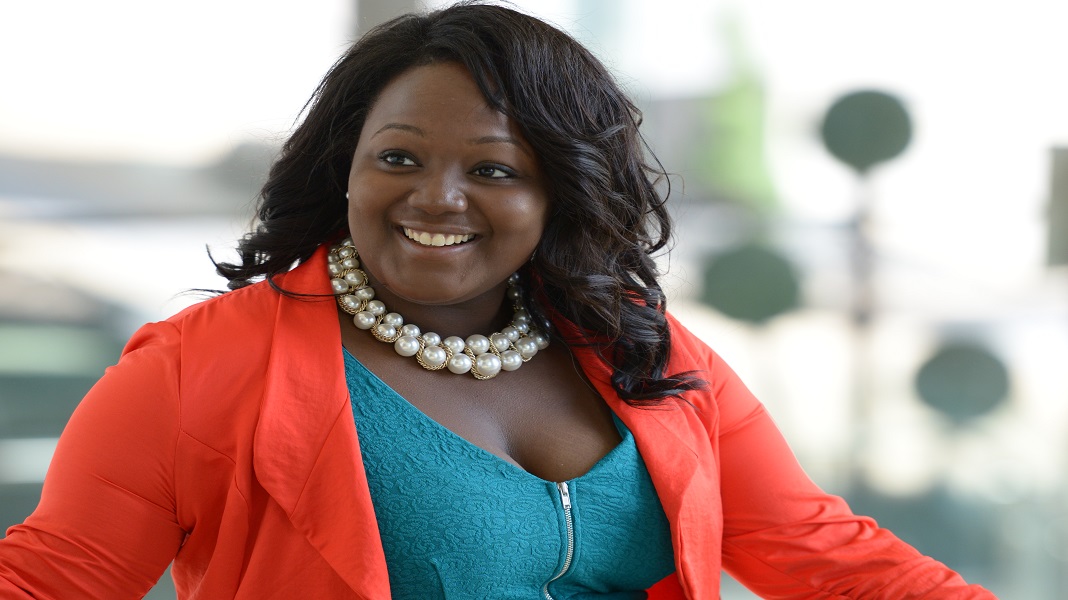
“Imagine having cancer [since childhood] and not treating it,” T-Kea Blackman told me as she compared her battle with depression and anxiety to the fatal disease.
The New Jersey native quietly battled with her own mental illness during her childhood, which caused two failed suicide attempts. Children committing suicide is getting more attention since the sudden suicides of 10-year-old Ashawnty Davis and 8-year-old Imani McCray. Blackman feels it’s important for adults to encourage children to express their feelings and not dismiss them when they feel something is wrong.
“There are so many instances where adults ignore children,” she told me over the phone. “They’ll say things like ‘ain’t nothing wrong with you’ without truly understanding a child’s mental state. That’s why it is necessary to have conversations about suicide and mental health just like we talk about sex, drugs and gangs.
Blackman’s own battle with depression and post traumatic stress disorder has inspired her to jumpstart a podcast, “Fireflies Unite” to help normalize discussing mental health in the black community and tear down the stigmas of what mental illness looks like.
“I want to show people that mental illness is not just that homeless person talking to themselves while walking down the street,” the 27-year-old said. “It’s also the person who is an attorney who may have bipolar disorder . It’s also that overworked mother who is feeling depressed and feeling like she can’t hold it together.”
Mental health-related conversations are stigmatized in the African-American community, which leads to many adults and children battling mental illnesses and being undiagnosed. According to the National Alliance on Mental Illness, 18. 6 percent of African Americans in the U.S suffer from a mental illness. Plus, African-Americans are 20 percent more likely to experience serious mental health problems than the general population, according to the Health and Human Services Office of Minority Health.
Children are also very vulnerable, specifically black children. In a 2015 study, it was found that the suicide rate increased significantly in black children from 1993 to 2012. Blackman can relate, as her battle with depression and suicidal thoughts began when she was just 13. At 12, she began witnessing domestic violence in her household, which led to becoming progressively anxious.
“I remember always being worked up and anxious about every single thing and people would tell that I worry about everything,” she said. “I’d have really bad chest pains not knowing that was a sign of anxiety. I thought everybody stressed like that.”
When she sought help at her church, where she also sang in the choir, she was given dismissive advice instead of being referred to a psychotherapist.
“I was told ‘talk in tongues for 20 minutes you’ll be fine.’”
At 14, she acted on her suicidal thoughts and attempted to gulp a handful of pills, but ended up spitting them out once she heard someone approaching her room.
She continued to have thoughts of taking her life, but with the help of her mentor from the Big Brothers Big Sisters Foundation and engaging in extracurricular activities such as dance, Girl Scouts and playing an instrument, she was able to suppress them.
Though her coping skills helped her manage her distress, once she began her undergraduate career at Howard University, it began harder to quiet her worrisome thoughts. Not only did she worry about her mother, who was still in an abusive relationship, she feared that something would happen to her father since he battled a drug addiction.
“What if I get a phone call that my father overdosed,” she would think to herself. “I was really worried about my mother being possibly killed by my sibling’s dad as well.”
But still, Blackman continued to push her suicidal thoughts and angst to the back of her mind as she continued with her studies.
In 2015, her symptoms became too much to bare and began to interfere with her personal, social and work life. She was fatigued, sleep deprived, isolated from her friends and frequently called out sick from work. She also felt physically ill.
“I had body aches. It felt like I had the flu. It felt like I had tons of bricks weighing down on my body.”
After explaining her experience to her primary doctor, he referred her to a psychotherapist, but Blackman became disengaged during the therapeutic process and stopped going. In 2016, Blackman had constant suicidal thoughts for eight months and she could no longer ignore them. With a deadly combination of pills and alcohol, she tried to end her life.
Before her attempt, she let a close friend know that she wasn’t going to be around for much longer, which led her friend to call the police. After a psychiatric hospitalization, Blackman shared her secret with her mother. She said this conversation “opened the door for everything.”
“I felt like the anxiety and depression were controlling me because I was so embarrassed. I thought it was a character flaw, like something was wrong with me.”
With “Fireflies Unite,” Blackman will have open discussions with guests that will shed light on the stigmas and myths about mental health in the black community. Among her guests will be mothers who have lost their children to suicide and a pastor who has been diagnosed with bipolar disorder.
“On an episode titled ‘You Need to Pray Those Demons Away’ we’re talking about the importance of merging mental health into the black church to offer resources. I also interviewed a therapist and she gave ways the church can address mental health.”
She named her podcast “Fireflies Unite” because just like fireflies, the show will shed light on the taboo conversations about mental health in the African-American community that consequently keep us in the dark about an issue that plagues our people.
Lend your ear to her weekly podcast here.









